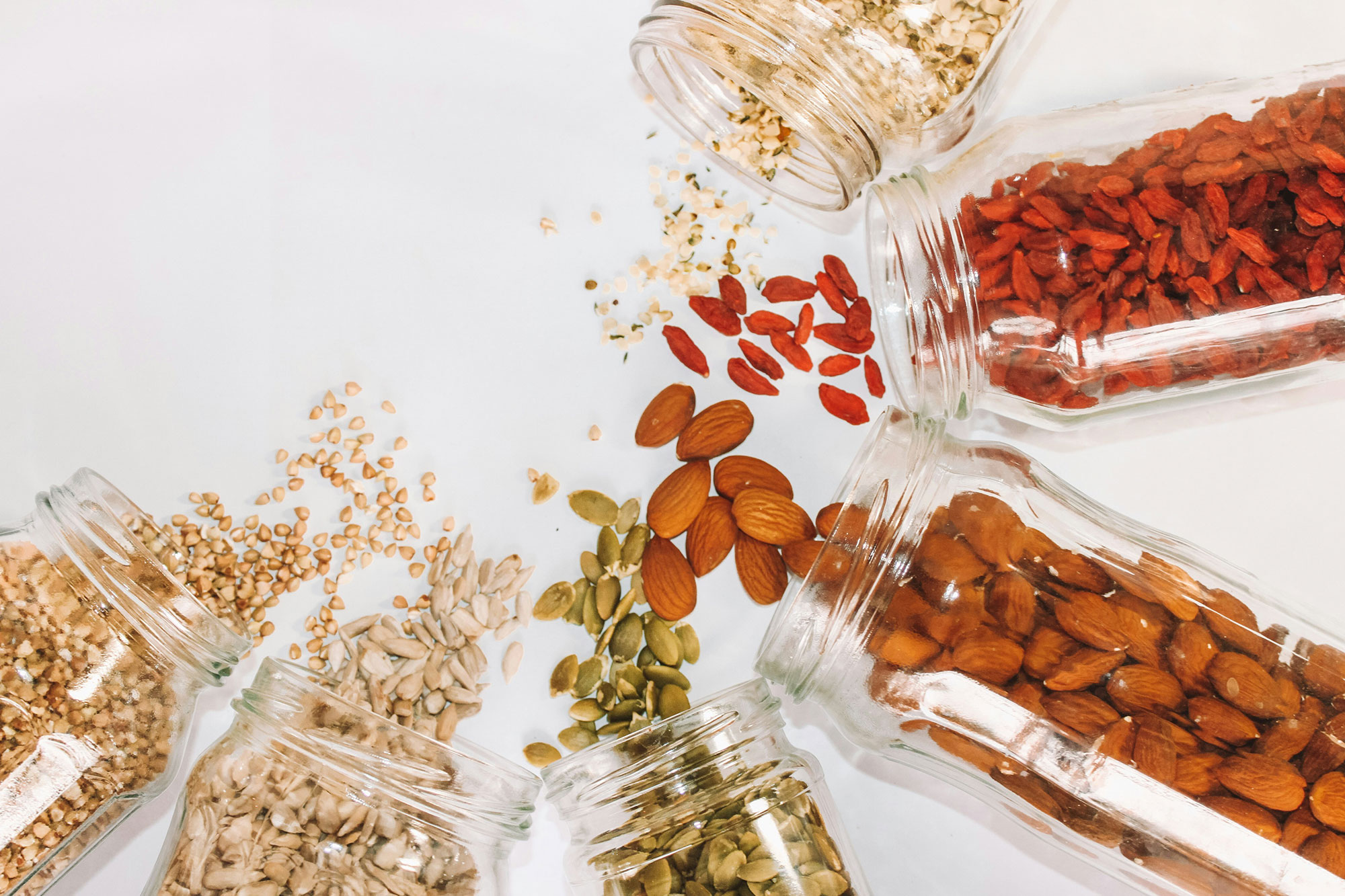Nutrition: What You Need to Know for Healthy Aging
Aging brings about many unwelcome changes.
- Have you noticed your metabolism slowing down and you are gaining weight?
- You are tired, moody, can’t sleep, have brain fog, are achy, have poor digestion and elimination
and just don’t feel like yourself anymore. - Life feels overwhelming and it is hard to keep up with daily life, let alone enjoy it.
- Bones weaken, muscle is lost, and many people feel like it will only get worse…
These are real, challenging issues, and you’re not alone in facing them. This can be discouraging and frustrating and not knowing what to do or who to turn to. But here’s the good news—there’s a lot we can do to feel vibrant and healthy again.
The Transformational Path to Better Health
Small, intentional changes to your diet and supplement choices could lead to significant improvements in how you feel. Diet and supplements can support your overall health in a big way. Let’s explore some practical steps that can help transform your health and well-being.
Prioritize Quality in Your Diet
Lean, High-Quality Protein: One of the major threats to living independently is loss of muscle mass and frailty. Protein is crucial for maintaining muscle mass, which naturally declines as we age. I recommend incorporating high-quality protein sources like lean meats, fish, eggs, and plant-based options like lentils and chickpeas. These not only support muscle health but also keep you feeling full longer, helping manage weight. Our need for protein increases as we age.

It is hard to get the amount needed for muscle strength and recovery without added fat or carbohydrates so many people turn to protein powders.
Consider a protein powder that uses premium sources like whey protein isolate, pea protein isolate, or hydrolyzed collagen. These sources are known for high bioavailability and complete amino acid profiles, essential for muscle synthesis and recovery. Avoid protein concentrates that have more fillers and less protein. Plant protein, in midlife, is associated with higher odds of healthy aging. 2 Plant-based options, often use a blend of proteins (e.g., pea, rice, hemp) to ensure a complete amino acid profile.
Collagen: Look for hydrolyzed collagen peptides derived from clean, reputable sources like wild-caught fish or grass-fed, pasture-raised animals. These sources are less likely to contain contaminants such as heavy metals or hormones. Hydrolyzed collagen peptides are more easily absorbed by the body. Non-hydrolyzed collagen or poorly hydrolyzed collagen, which can be less effective due to larger molecular size, leading to lower absorption rates. Avoid products with additives or fillers used to bulk up the product. Collagen supports skin elasticity, joint health, and strong nails. Be sure the collagen is sourced from clean, reputable sources to avoid contaminants like heavy metals.
Fruits and Vegetables: Think of your plate as a canvas—fill it with a variety of colorful fruits and vegetables. These are packed with essential vitamins, minerals, and antioxidants that combat oxidative stress and inflammation, both of which accelerate aging. Not only do they provide necessary nutrients, but they also add fiber to your diet, supporting gut health and digestion.

Five servings a day was the recommended guideline, however that is not enough. Having 7 or ore servings has more health benefits and a 36% lower risk of dying.
Food is grown in nutrient depleted soil and loses nutrients in shipping, storage, cooking and digestion. Even if you get 7 servings, the vitamin and mineral content may not be optimal.
Choose multivitamins and minerals that provide bioavailable forms of vitamins and minerals. For instance, methylated B vitamins are more easily absorbed and utilized by the body, supporting energy levels and brain health. Avoid less bioavailable forms that use cheaper, less absorbable forms of nutrients, like calcium carbonate instead of calcium citrate or synthetic vitamin E (dl-alpha-tocopherol) instead of natural vitamin E (d-alpha-tocopherol).Ensure these supplements are third-party tested for purity and potency.
Healthy Fats: Don’t shy away from fats—just choose the right ones. Healthy fats, like those found in avocados, nuts, seeds, and olive oil, are vital for hormone production and brain health. They help absorb fat-soluble vitamins like A, D, E, and K, which are crucial for various body functions.
The type of fats consumed are more important than the total amount. Replacing saturated fat with carbohydrates, specifically refined, has no benefit on cardiovascular disease risk.
The Standard American Diet has a high ratio of saturated Omega 6 fats and not enough unsaturated Omega 3 fats. If you don’t like fish, olives, avocado, and nuts, or don’t get enough of them, consider a fish oil supplement.
Fish Oil Supplements are tricky. Count the actual amount of EPA and DHA and look for supplements that have a triglyceride backbone. Many poor quality supplements that claim 1,000 mg of fish oil have a lot of marine lipids and are esterified. These forms are not as well absorbed.
Fiber: Fiber has so many health benefits such as making you feel full, maintaining weight, regulating sugar and fat metabolism, increasing insulin sensitivity, improving bowel movements and elimination of toxins, and reducing the risk of inflammation, depression, cardiovascular disease and colon cancer. Fiber is also food for the gut microbiome, the bacteria in the gut that can regulate the hormone, immune and nervous systems as well as production and absorption of nutrients.
Current recommendations are to get 30–35 g per day for men and between 25–32 g per day for women.
Avoid ultra processed food that has fiber stripped out and aim for whole grains, fruits and vegetables as well as high fiber foods and supplements.
Fiber Supplements: If you’re looking to add fiber to your diet, consider options like chia seeds or flaxseeds instead of psyllium husk, which has been found to contain contaminants like lead in some cases. These seeds also provide omega-3 fatty acids, which are great for heart health. Choose organic and Non GMO that are free from pesticides. Avoid synthetic fibers like cellulose that may lack the benefits of whole food sources.
Choose High-Quality Supplements
Not all supplements are created equal. It’s essential to select products that are free from contaminants and are tested for quality and efficacy. For example:
Factors to consider when choosing supplements
- Research the Brand: Choose brands with a good reputation for quality and transparency. Look for reviews and any clinical studies they may have conducted.
- Check for Third-Party Testing: Ensure the product has been tested for purity, potency, and contaminants by an independent lab. Look for certifications from organizations like NSF International, USP, or ConsumerLab.
- Read Labels Carefully: Avoid products with artificial additives, fillers, or ingredients you’re unfamiliar with. Opt for supplements with clear, detailed labeling.
- Consider Your Needs: Choose supplements that match your specific health needs, including any allergies or sensitivities you may have.
- Order from Authorized distributors: Fake, adulterated supplements on third party platforms are rampant. You often don’t know what you are getting.
- Consult Healthcare Providers: Especially if you have underlying health conditions or are taking other medications, cons.
- Sign up for Supplement Savvy: You can get access to high quality supplements direct from the manufacturer or authorized distributor at a discount. Supplement protocols and how to choose supplements are included and the best thing is that it is complimentary.
Thrive and Age-less
Remember, the goal isn’t to achieve perfection but to make sustainable changes that enhance your quality of life. As we draw inspiration from nature, consider the resilience of a tree that grows stronger through seasons of change. Like that tree, you too can find strength and vitality through these transitions.
Taking care of yourself is an ongoing journey. By prioritizing quality in your diet and supplements, staying active, and managing stress, you can navigate the challenges of aging with grace and vitality. Here’s to embracing the journey and feeling great at every stage of life!
References:
- Baum JI, Kim IY, Wolfe RR. Protein Consumption and the Elderly: What Is the Optimal Level of Intake? Nutrients. 2016;8(6):359. doi:10.3390/nu8060359
- Korat AVA, Shea MK, Jacques PF, et al. Dietary protein intake in midlife in relation to healthy aging – results from the prospective Nurses’ Health Study cohort. Am J Clin Nutr. 2024;119(2):271-282. doi:10.1016/j.ajcnut.2023.11.010
- PEM D, JEEWON R. Fruit and Vegetable Intake: Benefits and Progress of Nutrition Education Interventions- Narrative Review Article. Iran J Public Health. 2015;44(10):1309-1321. Accessed July 26, 2024. https://www.ncbi.nlm.nih.gov/pmc/articles/PMC4644575/
- Liu AG, Ford NA, Hu FB, Zelman KM, Mozaffarian D, Kris-Etherton PM. A healthy approach to dietary fats: understanding the science and taking action to reduce consumer confusion. Nutr J. 2017;16:53. doi:10.1186/s12937-017-0271-4
- Barber TM, Kabisch S, Pfeiffer AFH, Weickert MO. The Health Benefits of Dietary Fibre. Nutrients. 2020;12(10):3209. doi:10.3390/nu12103209





She is a recognized and award-winning holistic, functional, integrative and anti-aging healthcare practitioner, speaker and author, and has been featured in ABC News, Forbes, WOR Radio and many media outlets to spread the word that you can live younger and healthier at any age.